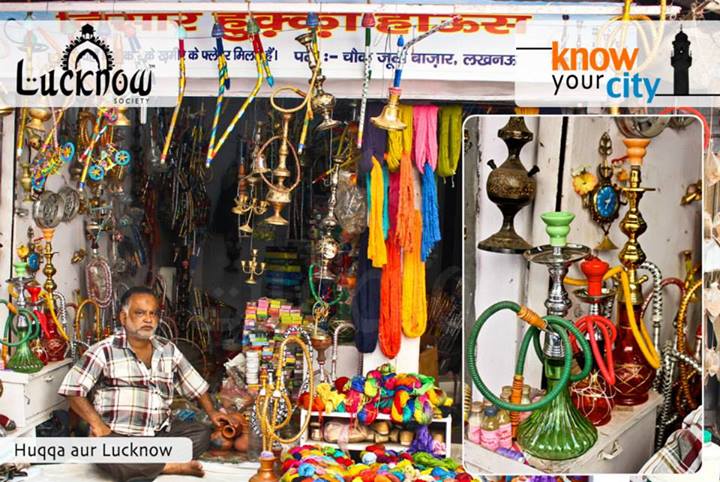Huqqa aur Lucknow
The word huqqa has been derived from Arabic language. Huqqa is an elaborate tobacco smoking pipe with a water bowl attached at the bottom, through which smoke is drawn. Abdul Halim Sharar in his book Guzishta Lucknow talks about the use of huqqa in great detail. It is believed that huqqa was first created in Delhi by Mughals, but it was beautified only in Lucknow. Various dimensions, shapes and varieties of huqqa were invented in Lucknow. For instance, the earthenware huqqas were produced in Lucknow and were extremely popular because of the delicacy of design. The pichvans were also made in Lucknow, which were huqqas with flexible extension of stem. Another important improvement in huqqa was the addition of syrup which was prepared using spices and perfumes. It was believed that the designs of huqqas in Lucknow were inimitable as they were made so flawlessly. Nawabs of Lucknow had beautified the huqqa upto the level of a bride. You can have your favourite piece from the Nissar Huqqa House in Chowk which has been going over four generations. The shop exhibits numerous varieties of huqqas and more than 70 flavours of tobacco. Huqqa is an integral part of the cultural heritage of Lucknow !
It is known by various names across the globe like sheesha in Middle East, gudugudaa in Maldives, kalian in Iran and huqqa in Indian subcontinent. Huqqa was a royal tradition and gradually it became a leisure activity done in gatherings also. In present times where people prefer rolling and smoking cigarettes, there are some who still enjoy smoking the traditional huqqa. Many people these days relate to huqqa as it is considered lesser harmful than cigarette. The tradition of smoking huqqa is still prevalent in rural parts of India and has recently regained its popularity with the coming in of lounges and pubs. Akshay Kumar & Asin have promoted huqqa with the latest song ‘huqqa bar’. Dhirendra Kumar has reminded a muhawra which explicits the importance of huqqa in social life, “huqqa pani band karna”!
Credit : Intern – Nishita Banerjee

